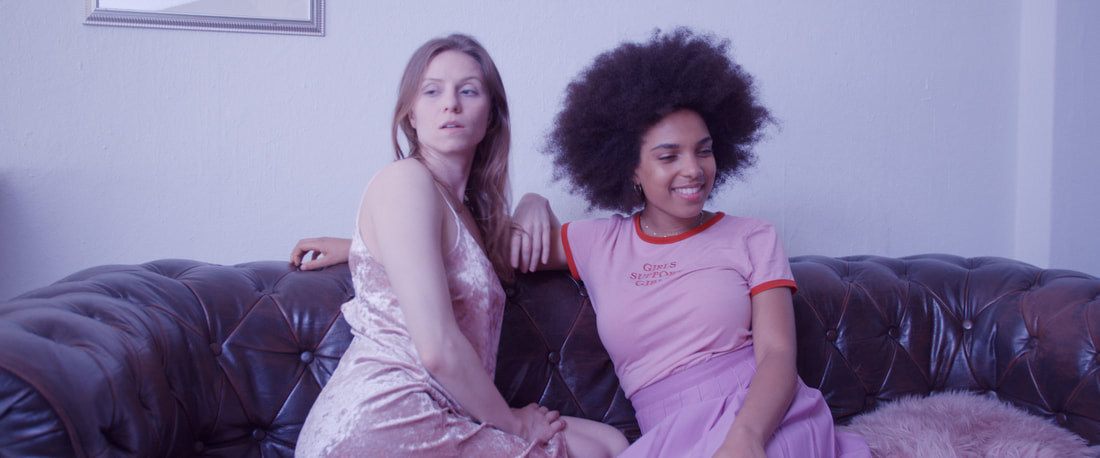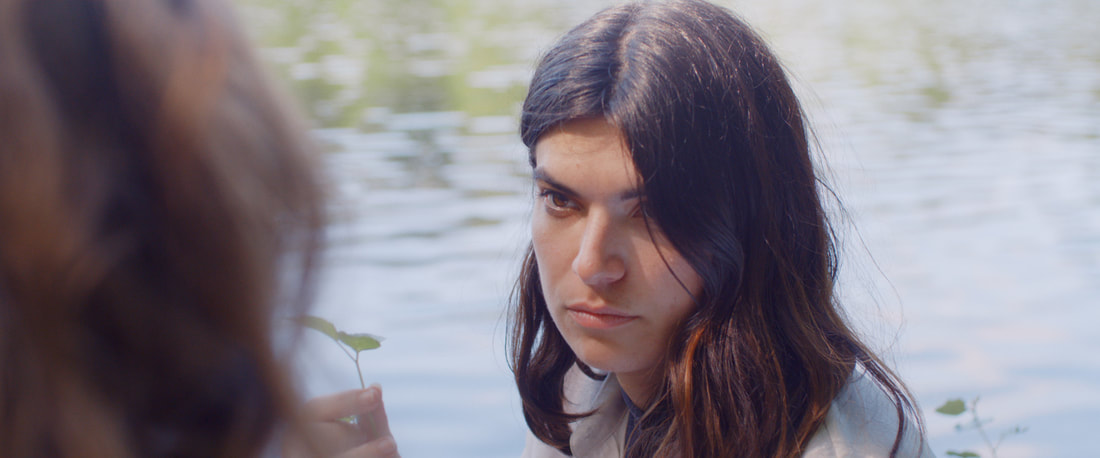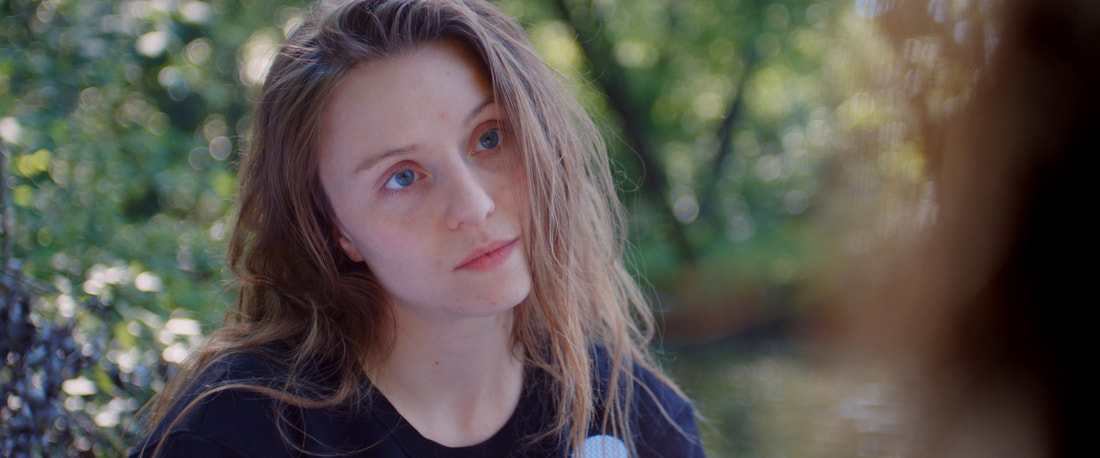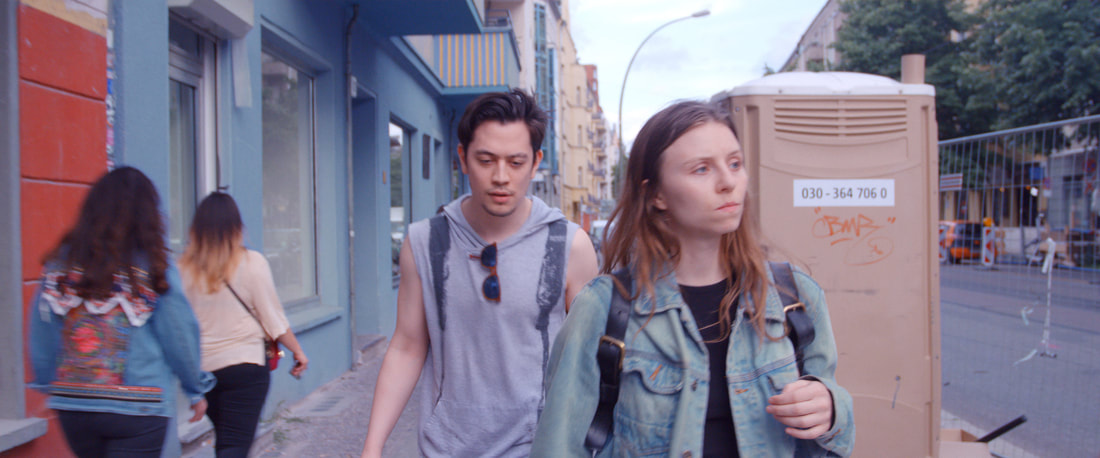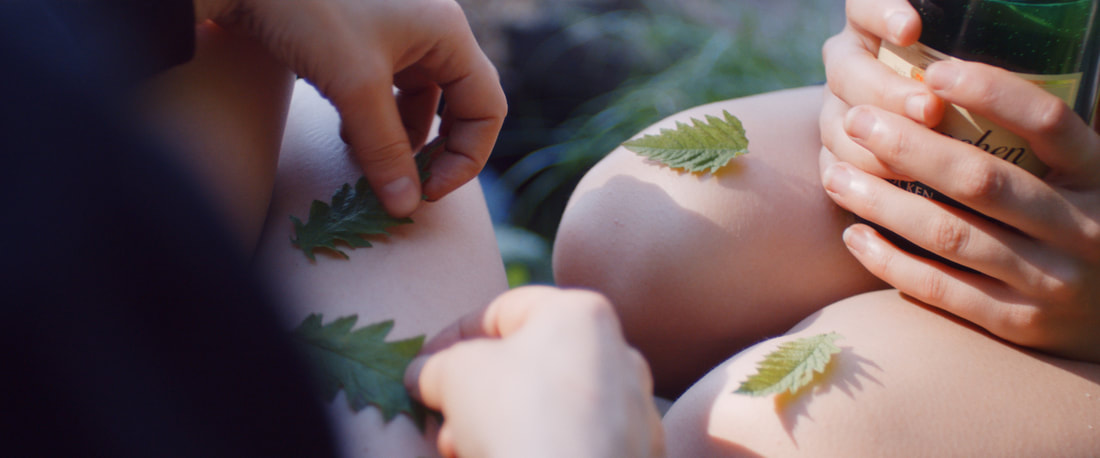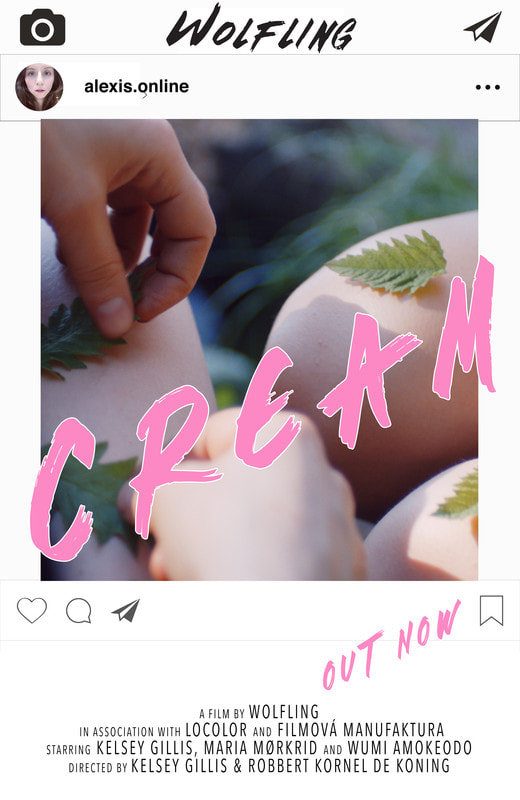|
Cream
While shooting on location in Berlin, a young woman reconnects with her estranged sister, unearthing the trauma that led to their rift. Cream is a character piece that looks at trauma, coping mechanisms, differing views, the familial sphere and how we internalize trauma while projecting it onto others. It views two siblings who exist within somewhat isolated spheres, whom until now, have failed to communicate due to the deep trauma and loss that has left them divided. Kelsey Joan Gillis was born and raised near the forest in North Vancouver, British Columbia to Irish-Canadian parents and has dual citizenship.Though always deeply connected to performing, she spent her adolescence in the Vancouver countryside, working with animals, horses and competing as an up and coming high level equestrian. After several years of travelling throughout North America and training with show barns, she shifted due to reasons of further self exploration and started to expand as a writer, actor and dancer, while simultaneously travelling and living around the world. In 2019, Kelsey founded the production company Wolfling with partner Robbert de Koning. Inspired by themes of awakening, the cosmos, trauma, transmutation, erotica and the human experience, Kelsey ultimately seeks to build an artistic bridge between the world of the spiritual and human. https://www.instagram.com/kelseyjoangillis/ https://www.instagram.com/wolfling.film/
1. How did this story come to life? This story struck me as a classic family drama, where tragedy brings people together for regrowth. Also very much about people’s attitudes towards sex work, and to women taking control of what men had monetized throughout the years (women’s bodies). How did all of these elements come together?
The film itself developed from an opportunity to do a camera test, and the story itself was an idea that had been percolating for a while. I had been previously inspired by a friend who had worked in the adult film sector of the industry and had done so for a while. Though, they were mostly satisfied with their occupation, they felt unable to share what they were doing for a living with their family, which put tremendous pressure on them. I believe they did open up to their immediate circle, several years down the line, and that transition wasn't unsimilar to what we explored in Cream. I wanted to start the continuous conversation on sex work in this film in particular, and will be exploring it in other projects to come to varying degrees. There is both a dark and light side to the sex work sphere, light being the work as an anecdote to the patriarchy and the the dark side being the slavery and trafficking of human beings. Though both are often thought as related, I do perceive them as coexisting independent satellites, that have depending on situation, sectors, place and persons involved, common exchange. I firmly believe that sex work is work, while trafficking is trafficking. In Cream, the focus was on our protagonist Alexis and the fact she felt very liberated in control, and empowered by her choices, even in the retrospect of trauma. Whereas when viewed through her sister Emma’s gaze, there was an underlying tone of bias, fear, prejudice and misunderstanding. My goal was to weave the conversation, within the context of a sibling reconciliation story, which looks at two very different, yet similar, sisters who have both been struggling with the semi recent loss of their mother. Ultimately, the focus is on what unites them, the subtext being their shared and respective trauma, within the sphere of how Alexis’s work shapes conversation within their lives. A lot of wonderful souls came together to make this little project happen, without them, it wouldn't have come to life at all. So I must give a heartfelt mention to two major contributors, our friends at Filmová Manufaktura and Cineready Rental!
2. A lot of the dialogue feels very natural and unscripted. How much was this improvisation or was it completely scripted? Can you describe the rehearsal and production process?
There was a script, with both dialogue and situations written in. However, as I wanted to work in improv as much as possible, the script was just used as a marker point. It was predominantly improvised and I cast individuals who I felt would play their characters close to the bone, so as to deliver as natural and honest performances as possible. The rehearsal and production process was both sweepingly chill and a bit rushed. Cream was born from a camera test that started as a scene and then expanded itself into a short. We basically had a week long window to prepare everything, and ideally, I would have loved to have been able to have done a proper full pre production on it. However, I am still pleased it turned out the way it did. Rehearsal wise, I workshopped with each actor and discussed the scenes, context and situations. As well as I went into character and stayed in character throughout the duration of the film's inception and wrap.
3. You’re the main actor in the film, as well as the director. How was the experience of juggling these two important roles?
It was definitely a new experience, and I luckily had my amazing co- director, and ride or die partner, who was the D.O.P. - directing alongside me. They were able to focus on the more technical crew aspects, while I focussed on the cast and the mis en scene. Then we would re-group and meet somewhere in the middle before each scene.
4. One scene that effected me was the street harassment scene. Why did you include that in the story?
I actually took that scene right out of my own day to day experiences as a female and that of those who are female identifying around me. I have experienced situations like that myself, whether in physical actuality or in paranoia, in which anxiety builds, situations run though your mind and you start thinking in all kinds of scenarios. The scene also serves as an homage to the friend whom inspired the film and pays tribute to a story they told me once. Which in brief; involved them attending a regular, vanilla acting audition with a known director, who completely creeped on them during a pre #metoo era audition. In which he dismissed their work in the room, and lewdly complimented on how familiar was with their other work, and that he considered himself a fan of their more explicit content. My friend had felt totally exposed and devalued after that as an artist, and that story has always stuck with me.
5. What are you working on now? Any upcoming projects?
I am working on a few feature scripts that I am really excited about. Unfortunately, they do have slight NDA’s attached, so I can’t really share much information about them as of yet. But I am going to delve deeper into the realms of sex work, the undergound, mythological creatures, horror, nature, galactic themes and hope to create some really cool genre pieces in the near future now ;) Comments are closed.
|
Tips and Picks from our collective members and featured artists!
Hand-picked short films and interviews with filmmakers. Free streaming (for a limited time) and 5 questions answered by the filmmakers. Contributers
All
|
